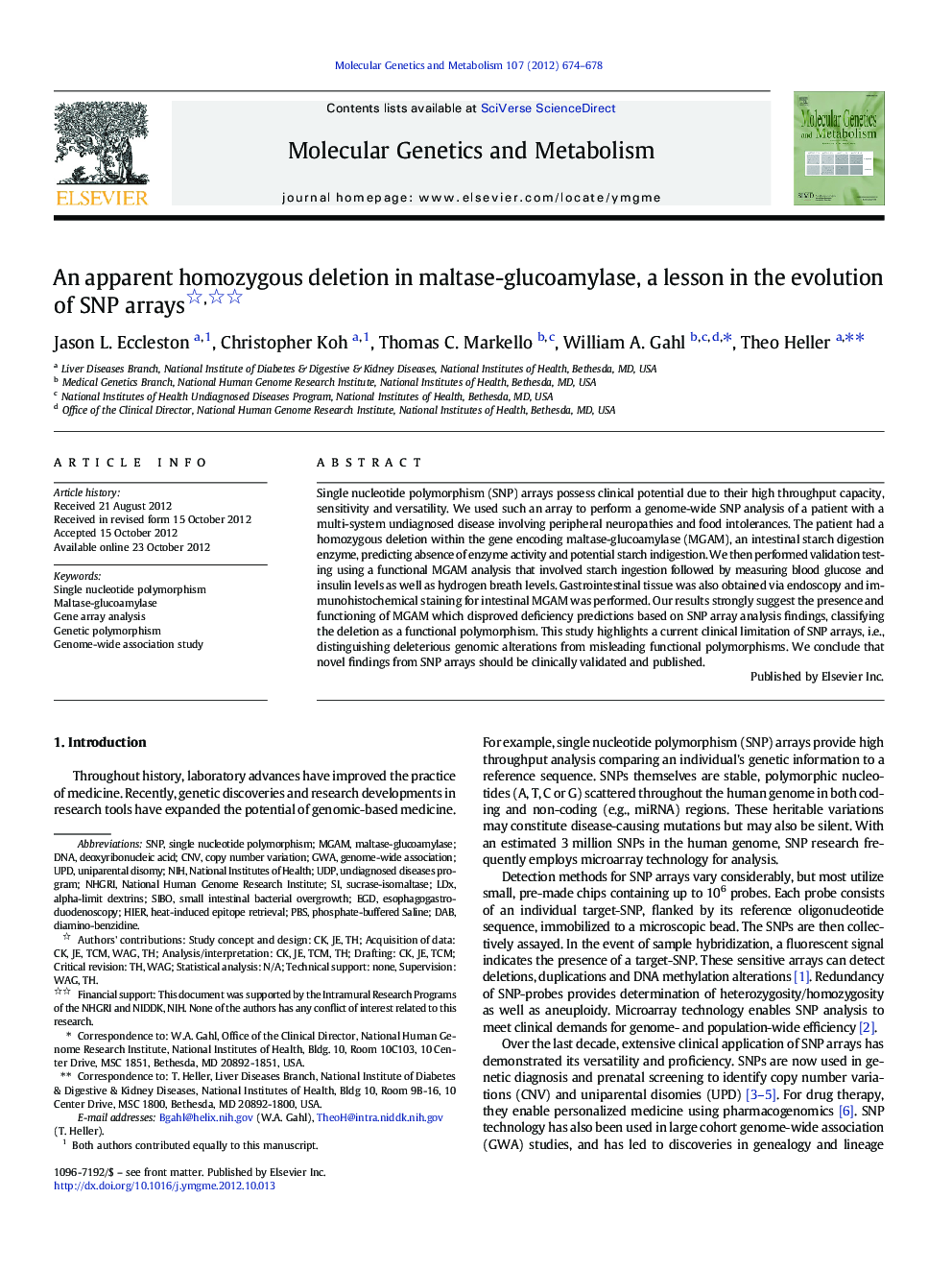| Article ID | Journal | Published Year | Pages | File Type |
|---|---|---|---|---|
| 1998322 | Molecular Genetics and Metabolism | 2012 | 5 Pages |
Single nucleotide polymorphism (SNP) arrays possess clinical potential due to their high throughput capacity, sensitivity and versatility. We used such an array to perform a genome-wide SNP analysis of a patient with a multi-system undiagnosed disease involving peripheral neuropathies and food intolerances. The patient had a homozygous deletion within the gene encoding maltase-glucoamylase (MGAM), an intestinal starch digestion enzyme, predicting absence of enzyme activity and potential starch indigestion. We then performed validation testing using a functional MGAM analysis that involved starch ingestion followed by measuring blood glucose and insulin levels as well as hydrogen breath levels. Gastrointestinal tissue was also obtained via endoscopy and immunohistochemical staining for intestinal MGAM was performed. Our results strongly suggest the presence and functioning of MGAM which disproved deficiency predictions based on SNP array analysis findings, classifying the deletion as a functional polymorphism. This study highlights a current clinical limitation of SNP arrays, i.e., distinguishing deleterious genomic alterations from misleading functional polymorphisms. We conclude that novel findings from SNP arrays should be clinically validated and published.
► GWAS identified a homozygous deletion encoding maltase-glucoamylase (MGAM). ► We designed a novel technique for functional testing of MGAM in humans. ► We designed a novel technique for staining of MGAM in human tissue. ► SNP array results did not result in clinically relevant genomic-based diagnosis. ► Novel findings from SNP arrays should be clinically validated and published.
